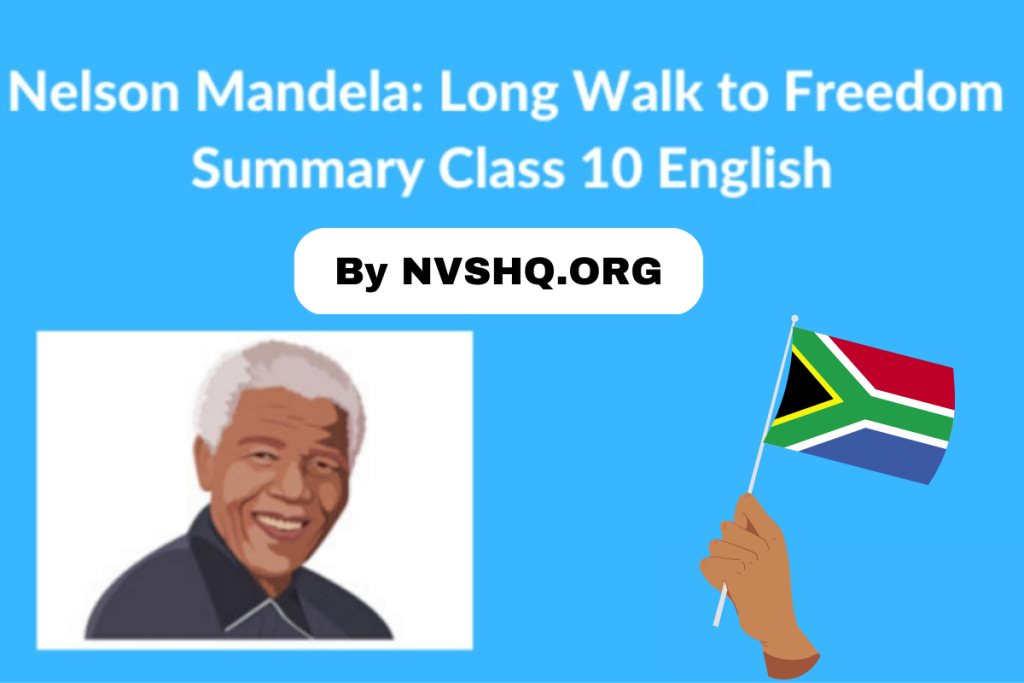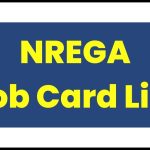Nelson Mandela: Long Walk To Freedom Summary: In this article, we have provided with the Nelson Mandela Long Walk To Freedom summary for class 10 students. This is the second chapter of the book First Flight.

Nelson Mandela Long Walk To Freedom Summary For Class 10
The chapter Long walk to freedom is chapter 2 of Flight book. The chapter is an extract from the autobiography of Nelson Mandela ‘Long Walk To Freedom’. Mandela is a well-known personality in the world and was the face of the freedom struggle in South Africa. He went to prison for 30 years and was the first black president of South Africa. Nelson Mandela fought against the evil practice of Apartheid racial discrimination between whites and black based on their skin colour. In this extract, he talks about the historic moment ‘The Inauguration’ when he was sworn in as the first black president of Democratic South Africa on 10th May 1994.
Mandela describes the day as bright and clear and that the ceremony is going to take place in the Union building in Pretoria. At the ceremony his daughter, Zenani was also present there with him. Before him, two others have taken the oath were Mr De Klerk who took the oath as second deputy president and Mr Thabo Mbeki as first deputy president. When it was Nelson Mandela’s turn he took the pledge to liberate his people from suffering, poverty and racial discrimination.
The sky was filled with the colours of the newly formed country South Africa by the jets and all the army officials were paying him tribute and pledged their loyalty to him. The day was symbolised for Mandela as two national anthems were played, ‘Nkosi Sikelel -iAfrika’ by the whites and the ‘ Die Stem’ by the blacks which was the old anthem song of the republic.
He remembers that on the day of the inauguration, he was overwhelmed by a sense of history. He remembers how the system of apartheid was so inhumane and there were so many people who fought against it for him, the best resource of the country was not his minerals but the people who were the real diamonds. And that’s the reason why the country is free and because of them those martyrs who were men of extraordinary courage and wisdom.
Those people are the reason Nelson Mandela has become the president. He feels sad because those who have fought for the independence and rights of South Africa are not here and how happy and proud they would have felt upon seeing him like this. He talks about how from these people only he has learned the true meaning of courage.
From time to time he saw people risking their lives for just an Idea. He here quotes a line saying ‘I learned that courage was not the absence of fear but the triumph over it. The brave man is not he who does not feel afraid, but he who conquers that fear.’ He wished that only freedom should reign and according to him, no one is different from each other on the basis of colour and religion.
He further talks about the twin obligation or the duties which a person has towards his family and nation. He remembers that in the past when white supremacy was prevailing and someone tried to go against the Apartheid system and fulfil his obligation towards his nation then he was deprived of the obligation towards his family. He remembers that he was born free but as he grew up he realised that this freedom is just an illusion and at that time he started to feel hungry for his freedom.
He joined African National Congress in 1943 and this hunger for his freedom became the hunger for the freedom of his nation and people. And this hunger transformed him into a brave man. and fought for the liberation of his country. In the end, he stated that the oppressor should also be liberated from the hatred he has against others. The oppressor and the oppressed are the same and are robbed of their humanity.







